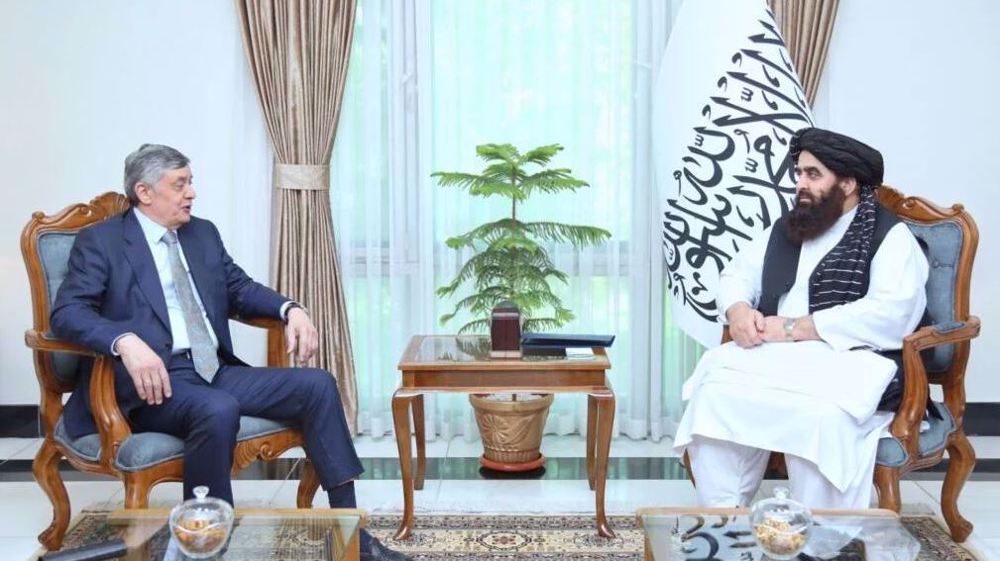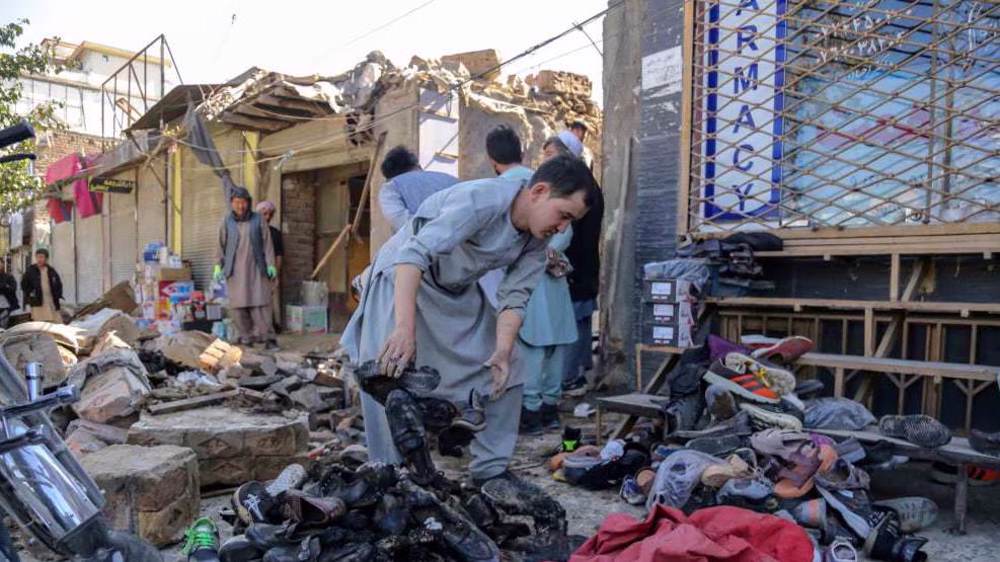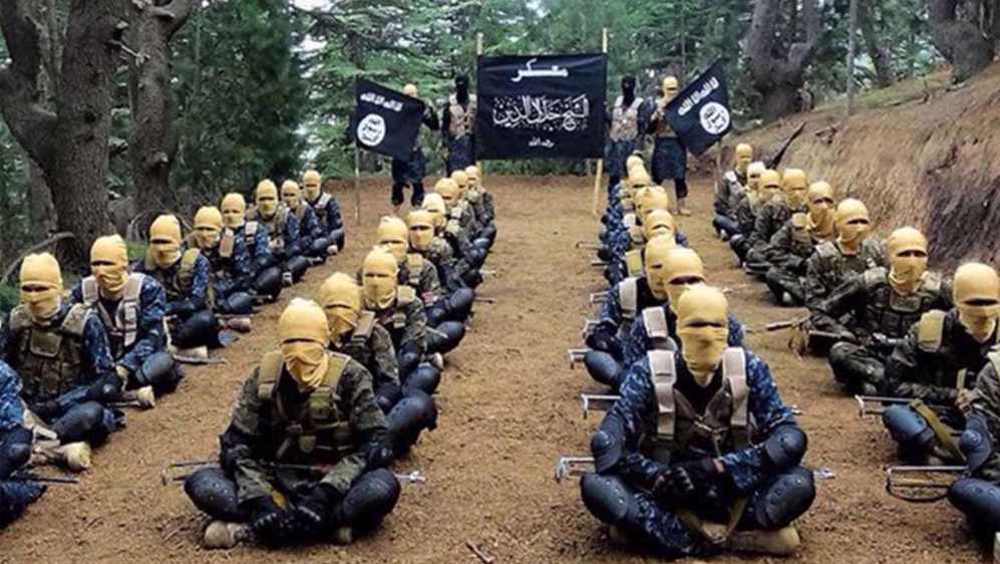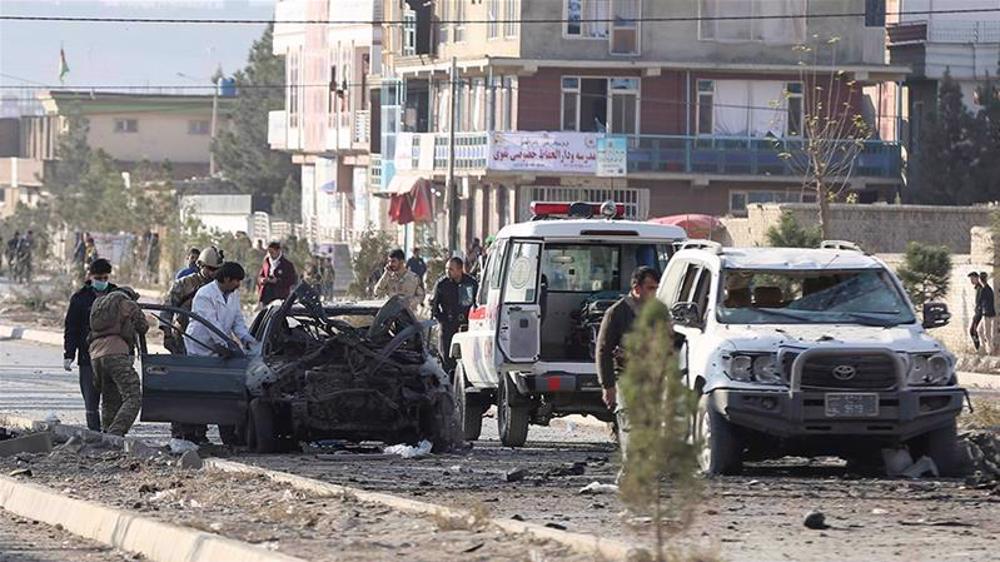Kabul police chief fired amid surge in Afghan attacks
Kabul's police chief has been fired following a rise in violence and bombings in the Afghan capital in recent weeks, the Interior Ministry says.
Interior Ministry spokesman Tareq Arian said on Sunday that authorities dismissed Ammanullah Wahidi and at least two other security officials over "the recent rise in insecurity" in the nation's capital.
Another top security official confirmed the removal of Wahidi, who oversaw security in Kabul and surrounding districts.
"The people are worried and the president is upset over these attacks," the official said. "There will be more changes in the security leadership of Kabul soon."
The dismissal came following mortar attacks that hit the presidential palace last week.
At least three people were killed and about 20 others injured in a string of rocket attacks that hit Kabul on Tuesday.
Fourteen rockets were fired into Kabul’s heavily-fortified green zone on Tuesday as the country marked its 101st independence anniversary. Witnesses said that on the same day some of the rockets struck near the presidential palace — where Afghan President Ashraf Ghani a short while earlier took part in an independence day event — and the Defense Ministry.
The area is home to a number of foreign embassies along with high-profile government installations.
The attacks came as Kabul has been rocked by a series of assaults using sticky bombs, homemade devices attached to vehicles with magnets.
On Saturday, officials said at least four magnetic bombs had exploded in the Afghan capital killing at least one security official and wounding six others, including civilians.
At least seven civilians were killed in eastern Ghazni province after an improvised explosive device (IED) struck their vehicle on Sunday, according to the governor's spokesman Wahedullah Jumazada.
More than 100 IEDs had been detonated across Afghanistan in the past two weeks.
No group has claimed responsibility for the increasing number of blasts caused by the devices, but the Afghan authorities have continued to pin the blame on the Taliban militant group.
Official data shows that bombings and other assaults by the Taliban have surged 70 percent since the militant group signed the deal with the United States in February.
The deal envisages a complete withdrawal of US forces from Afghanistan, and the Taliban pledged not to attack American and other foreign forces. They made no such pledge in relation to the Afghan government and people.
The Afghan government was a party neither to the negotiations nor to the deal, but it has been acting in accordance with its terms, including by agreeing to free Taliban prisoners. The militants have not stopped attacking government targets and civilians.
Washington invaded Afghanistan and toppled the Taliban-run government in 2001 on the pretext of fighting terrorism following the September 11 attacks.
The Taliban, however, never stopped their attacks, citing foreign military presence as one of the main reasons behind its continued militancy.
The Daesh terrorist group has also emerged in the Asian country more recently.
Ex-Israeli war minister Gallant to head to US despite ICC arrest warrant
Iran’s foreign minister in Portugal to attend 10th UNAOC Global Forum
VIDEO | Israel puts Beirut under back-to-back assaults as Hezbollah says Netanyahu won’t succeed
A siege within siege: 130,000 children under 10 trapped in northern Gaza
Top general: Iran’s deterrent power evolved to address modern maritime threats
Israeli forces kill two young Palestinians in occupied West Bank raid
Hezbollah breaks record of anti-Israel ops; four million settlers run for their lives
Iran rejects involvement in murder of Israeli rabbi in UAE
















 This makes it easy to access the Press TV website
This makes it easy to access the Press TV website